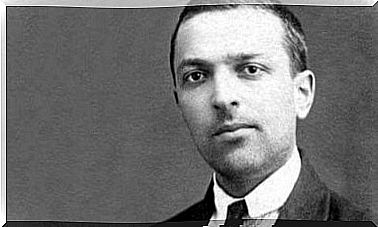The Biggest Hurdles At The Beginning Of A Relationship

In every relationship, and especially at the beginning, there are different hurdles to overcome. This is inevitable and perfectly normal as you get to know the other person very well and try to put the pieces of the puzzle together without hurting each other.
You will face some difficulties in your dealings with one another. Your expectations will slowly fizzle out and you will have to face reality. This can mean a lot of frustration if you’ve idealized the other person too much.
In general, these hurdles lead to getting to know the other person better, and overcoming them will form the basis of your relationship. Since this is a process of adjustment, you will have to accept these complications and, in some cases, arm yourself with a lot of patience to get through them. This is part of discovering and rediscovering your partner.
“We come together because of what we have in common; we grow based on our differences. “
Virginia satir
Learn to Communicate
Communicating, right, is one of the greatest challenges partners face, especially at the beginning of a relationship, when they have not yet practiced its dynamics. For good communication, you need to learn to express your needs.
Someone who has been with you for a long time may become an expert on your nonverbal language, but it will likely be easier for a new partner if you make open communication standard rather than cryptic.
Communication is often clouded by misunderstandings and quick, almost automatic interpretations. To avoid this, it is better to always ask before you interpret what the other person is saying and, most importantly, to focus all your attention on really listening when he is talking to you.
Communicating in a relationship is a challenge that you will have to face sooner or later. If you don’t learn to communicate, your relationship is doomed at some point. Communication is a fundamental building block for the functioning of a relationship and should therefore never be neglected.
Good communication is based on respect, empathy, listening and understanding. It means both expressing your own needs and taking care of your partner.

Adjust to reality
Being in love and idealization are close allies. It is inevitable that at the beginning of a relationship, one should primarily focus on the positive qualities of one’s partner. However, it’s important to keep both feet on the ground so that your expectations don’t stray too far from who your partner actually is.
If you are blindfolded and plan to live in a fantasy world where everything your partner does is wonderful, at some point you will fall off your cloud nine and feel terribly frustrated and disappointed.
It’s important to know that while your partner may have many positive traits, there are also things about them that you won’t like. Ultimately, true love means acceptance when you are willing to see the other person for who they are without trying to change them.
Trying to fill the void
Your partner is not there to meet your expectations, nor to fill the emptiness you feel within yourself. Being with someone in order to feel less alone or to forget past experiences with other partners is the first stroke in the wrong port. You have to fill your void yourself, even if others can help make the content more or less rich.

You may not be happy with yourself, but you cannot expect your partner to solve your problems and give you the peace and security you need in life. Nobody can do the work for you that can resolve your inner conflicts, not even your partner.
A healthy relationship means being with the other person to share who you are, not to fill your own emptiness. When you run away from loneliness, you make the mistake of never learning to be alone.
Infantile love follows the principle, “I love because I am loved.”
Mature love follows the principle, “I am loved because I love.”
Immature love says, “I love you because I need you.”
Mature love says : “I need you because I love you.”
Erich Fromm









